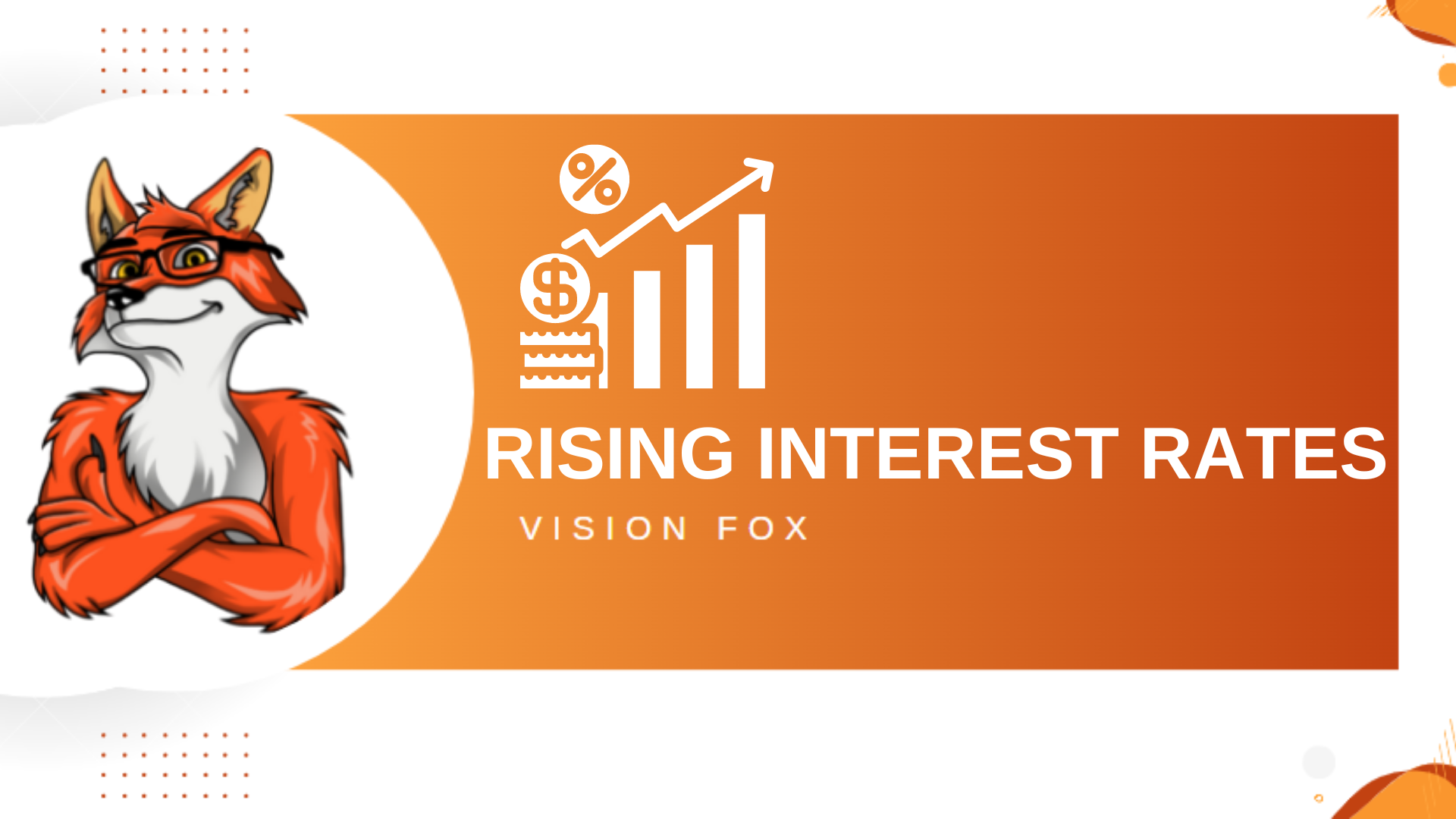Selling a business in Alabama is a significant decision, especially for owners approaching retirement. Understanding the timeline and the key factors that influence the sale can help set realistic expectations and streamline the process. Average Timeframe for Selling a Business The time it takes to sell a business varies based on several factors. On average, the process can range from six months to a year. This timeline includes:✅ Preparing the business for sale✅ Marketing to potential buyers✅ Negotiating offers✅ Completing due diligence and closing Factors That Impact the Sale Timeline Several key factors influence how quickly a business sells: 1. Financial Performance Businesses with strong, upward-trending financials tend to attract more buyers and sell faster. Buyers look for profitability, steady revenue streams, and clean financial statements. 2. Market Conditions Economic trends and industry demand play a role in how quickly buyers make decisions. A seller’s market, where demand exceeds supply, can lead to quicker sales. 3. Business Type and Industry Certain industries experience higher demand, leading to shorter selling timelines. For example, service-based businesses with recurring revenue often sell faster than niche manufacturing companies. 4. Preparation & Documentation (The Biggest Roadblock!) One of the most common delays in selling a business is lack of preparation. Many business owners don’t realize the gaps in their documentation until they are already deep into the selling process. Incomplete financials, missing contracts, and disorganized records can slow everything down. 👉 The right business broker can quickly help you see these blind spots. That’s why our team at Vision Fox includes certified business coaches and tenured marketing professionals—we help identify roadblocks months in advance of even going to market. This proactive approach saves time and reduces stress when it’s time to sell. Why Work With a Business Broker? A professional business broker adds value by:✔ Accurately valuing your business✔ Finding and vetting qualified buyers✔ Handling negotiations✔ Managing due diligence to prevent delays Ready to Sell Your Business? If you’re considering selling your Alabama-based business and want a smooth, efficient process, we’re here to help. Email us today at mike@visionfox.com to learn more about selling your business with Vision Fox Business Advisors.
Selling Your Home Service Business: Understanding Its True Value
As the home services industry continues to thrive, many business owners are contemplating the future of their enterprises. With over 2.5 million home service businesses operating across the United States understanding the value of your business is crucial, especially if you’re considering an exit strategy. The Booming Home Services Market The home services sector has seen remarkable growth in recent years. In 2018, the U.S. home services market was valued at $105.55 billion and is projected to reach $1,219.07 billion by 2026, with a compounded annual growth rate (CAGR) of 35.81% This surge is driven by increasing demand for services such as plumbing, electrical work, HVAC maintenance, and more. Determining the Worth of Your Business For owners of home service businesses, understanding what your business is worth involves several key factors: The Rise of Private Equity in Home Services Recently, private equity firms have shown increased interest in the home services sector. Since 2022, nearly 800 companies have been acquired by private equity, creating new opportunities for business owners This trend indicates a robust market for sellers, with many entrepreneurs achieving significant financial gains through such acquisitions. Taking the Next Step If you’re considering selling your home service business, it’s essential to have a clear understanding of its value and the current market landscape. Engaging in a conversation with a licensed business broker can provide clarity and guidance tailored to your unique situation. Contact Vision Fox Business Advisors to see if we are the right partner to help you navigate this pivotal journey. Our expertise in the home services industry ensures that you receive informed advice and support every step of the way. For more information and to schedule a consultation, email us today info@visionfox.com
The Biggest Mistakes Business Owners Make Before Selling – And How to Avoid Them
Are You 5-10 Years Away from Selling Your Business? You Might Be and Not Even Know It. Many business owners think about selling when they’re ready to retire or move on to their next venture. But here’s the reality—most businesses will sell faster and for more money if the owner has prepared at least 3 years in advance. The problem? Too many business owners wait too long to prepare—and by the time they’re ready to sell, they’ve lost value they could have captured with the right planning. Even if you’re not actively considering selling, there’s a high chance you’ll need or want to in the next 5-10 years. And if that time comes, you’ll want to be ready. Here are the most common mistakes business owners make before selling—so you can avoid them and maximize your exit strategy. Mistake #1: Assuming You’ll Just Sell When You’re Ready Many owners believe they can decide to sell whenever they want and that buyers will be ready and waiting. But that’s not how the market works. ✔ Businesses with strong financials, clean operations, and long-term planning sell for more money.✔ If your business isn’t prepared for due diligence, buyers may see risk and uncertainty, which lowers the sale price—or worse, kills the deal.✔ The best time to start preparing is years in advance—not when you suddenly want to sell. What to Do Instead ✅ Start thinking 3-5 years ahead so you can optimize revenue, clean up financials, and create a strong succession plan. Mistake #2: Not Structuring Your Business for Maximum Value Buyers don’t just look at revenues—they analyze the stability, scalability, and efficiency of your business. ⚠ Warning Signs That Lower Value: What to Do Instead ✅ Ensure your financial records are clean and transparent.✅ Reduce owner dependency by developing a strong management team.✅ Organize legal and operational structures so buyers see a business, not a mess. Mistake #3: Waiting Too Long to Improve Profitability Your business might be profitable now, but if profits are inconsistent or declining, buyers will offer less—or walk away. 📉 What Hurts Your Business’s Value? What to Do Instead ✅ Focus on growth and operational efficiency at least 3 years before selling.✅ Eliminate unnecessary expenses to boost profitability.✅ Strengthen customer retention and recurring revenue models. Mistake #4: Ignoring the Market Timing The market will impact your sale price—whether you like it or not. ✅ Industry trends, economic conditions, and buyer demand all play a role.✅ If you wait too long, you may hit an economic downturn that lowers buyer interest. What to Do Instead ✅ Keep an eye on market conditions and talk to a business broker early.✅ Get a business valuation NOW—even if you’re not selling yet—to understand your current worth and areas for improvement. Want to Sell for More? Start Planning Today. The businesses that sell for top dollar aren’t the ones that are simply “ready” to sell… They’re the ones that were strategically prepared. 🚀 Get our FREE Seller’s 3-Year Pre-Sell Checklist to start preparing your business for a profitable exit. 👉 Email your request to: info@visionfox.com By taking action now, you’ll position yourself for a higher sale price, faster deal, and smoother transition when the time comes. 💡 Have questions about preparing your business for sale? Contact Vision Fox Business Advisors today for expert guidance on maximizing your exit strategy.
The Art and Science of Business Valuation: A Comprehensive Guide
Business valuation is a crucial process for a variety of reasons. Whether you’re considering selling your company, attracting investors, planning an acquisition, or simply understanding your company’s worth, a reliable valuation is essential. It provides a quantitative framework for decision-making, enabling you to make informed choices that align with your business goals. This article delves into the intricacies of business valuation, offering a comprehensive guide to the methods, considerations, and challenges involved. Understanding the Foundation: What is Business Valuation? At its core, business valuation is the process of determining the economic value of a business entity. This involves assessing the company’s current financial health, future earning potential, and market position, among other factors. The valuation is ultimately expressed as a monetary value, representing the fair market price at which a willing buyer would acquire the business from a willing seller. Navigating the Methods: A Range of Approaches There are numerous valuation methodologies, each with its own strengths and limitations. The most commonly employed methods include: Income-Based Valuation This approach focuses on the future earnings potential of the business. Methods like Discounted Cash Flow (DCF) analysis project future cash flows and discount them back to their present value. Market-Based Valuation This method relies on comparable companies or transactions to determine the value. Analyzing publicly traded companies with similar characteristics or referencing recent acquisitions in the industry provides valuable insights. Asset-Based Valuation This approach assesses the value of the business by summing the value of its assets, often after accounting for liabilities. This method is particularly relevant for companies with a significant amount of tangible assets. Crucial Considerations: Factors Influencing Valuation The valuation process is not a simple formula; it involves a nuanced understanding of the business and its environment. Key considerations include: Industry Dynamics The competitive landscape, growth prospects, and regulatory environment of the industry significantly influence a company’s value. Financial Performance Historical and projected financial statements, including revenue, profitability, and cash flow, play a crucial role in determining the company’s value. Management Quality The experience, expertise, and track record of the management team are vital indicators of future success and, therefore, company value. Market Conditions Economic factors, interest rates, and overall market sentiment can impact the perceived value of a business. Challenges and Limitations: Addressing the Complexities While valuation methods provide a framework for understanding a company’s worth, several inherent challenges exist: Subjectivity Valuation is often subjective, as different analysts may interpret data and apply methods differently, resulting in variations in valuations. Future Uncertainty Predicting future earnings and market conditions is inherently uncertain, leading to potential discrepancies between projected and actual outcomes. Data Availability Access to reliable and comprehensive data is crucial for accurate valuation, and this data may not always be readily available. Conclusion: A Dynamic and Essential Process Business valuation is a dynamic and intricate process that requires a thorough understanding of financial analysis, industry dynamics, and market conditions. It is a valuable tool for businesses seeking to understand their worth, attract investors, or make strategic decisions. While inherent complexities exist, employing a combination of methodologies and critical thinking can yield a reliable and insightful valuation, providing a solid foundation for informed decision-making. For expert business valuation services, visit Vision Fox Business Advisors to ensure you get the most accurate and strategic valuation for your business.
The Power of Preparation: Understanding Your Business’s Value Before You Sell
For many business owners, their company represents a lifetime of hard work, innovation, and dedication. When the time comes to sell, ensuring you get the best return is crucial—but the process doesn’t start when you decide to sell. It starts long before, often 1–4 years ahead. Taking the time to understand your business’s value early on gives you the insights you need to maximize that value. At Vision Fox Business Advisors, we’re here to simplify and empower that journey. Let’s explore why understanding your business’s worth now, even years before selling, is one of the smartest moves you can make. Why Knowing Your Business Value Matters Why Vision Fox? At Vision Fox, we know how daunting the valuation process can seem. That’s why we’ve created an inexpensive, fast, and accurate approach to business valuations designed to provide immediate insights and practical steps. When the Time Is Right to Sell Whether you’re ready to sell next year or just exploring your options, we’ll be by your side to guide you through the process discreetly and professionally. Our experienced advisors understand the importance of confidentiality and work diligently to connect you with the right buyers while maximizing your business’s value. Selling a business is more than a transaction—it’s a transition. With Vision Fox, you’ll have the tools, insights, and support to ensure it’s a successful one. Start Today for a Better Tomorrow The sooner you start planning, the more control you have over the outcome. Reach out to Vision Fox Business Advisors today to schedule your valuation. Let’s uncover your business’s true potential and lay the foundation for a prosperous future. Primary Call to Action: Contact us today for your fast, affordable valuation!Secondary Call to Action: Know a business owner thinking about selling? Forward this post to help them start their journey to success! Vision Fox Business Advisors – Your Partner in Building and Selling Value.
Increase the value of your business before you sell it
Entrepreneurship isn’t just about founding and running a successful business; at some point, every entrepreneur has to think about selling their business. Whether it’s retirement, needing to transition to a new career, or just a change in lifestyle, at some point you might decide to sell your business. A business is an investment, and like any investment, you want to get the best possible returns. To make sure you get the best possible returns, you have to increase the value of your business before you sell it. Increasing the value of your business is no small feat, and it’s not something you can do overnight. You’ll need to take a long-term approach to building your business and making it more valuable to buyers. But there are some things you can do right now to improve the value of your company before you put it on the market. 1. Make Sure Your Finances Are In Order The value of your business is largely based on its financial performance. If your finances are in disarray, it will be difficult to sell your business for a high price. Make sure you have accurate financial records, including income and expense statements, balance sheets, and cash flow statements. If you need to, hire a bookkeeper or accountant to help you get your finances in order. 2. Focus On Your Customers And Clients The success of your business is directly tied to your customers and clients. If your customers are happy, your business will be more valuable. Focus on delivering excellent customer service and building strong relationships with your customers. 3. Diversify Your Revenue Streams If your business is reliant on one major customer or one line of products or services, it’s not very valuable to a buyer. Diversify your revenue streams to make your business more attractive to buyers. Look into new product lines, new markets, and new partnerships that can help you increase your revenue. 4. Build A Strong Management Team Buyers want to see a business that can run successfully without its owner. Build a strong management team that can take over daily operations and lead the business into the future. This will make your business more valuable to buyers and give you the freedom to step away from the business when you’re ready. 5. Create A Brand And Marketing Strategy A strong brand and marketing strategy can help you differentiate your business from competitors and make it more valuable to buyers. Focus on building a strong brand and developing a marketing strategy that targets your ideal customers. Selling your business can be a complex and emotionally charged process. You’ll want to make sure you’re getting a fair price and that the buyer will take care of your employees and customers. By taking the time to increase the value of your business before you sell it, you’ll be able to attract more potential buyers and get a better price for your investment.
How rising interest rates affect business sale prices?
In recent months, the topic of rising interest rates has been a popular one in the world of finance. Many businesses are wondering how this increase will affect their operations and profits, especially with regards to the sale of their business. In this article, we’ll examine how rising interest rates are affecting business sale prices. First, it’s important to understand the relationship between interest rates and the valuation of a business. Typically, when interest rates rise, borrowing money becomes more expensive for buyers. This makes it more difficult for potential buyers to secure loans to finance their purchase of a business, which in turn decreases demand for businesses on the market. Lower demand for businesses means lower prices, which can impact the amount of money that business owners are able to generate from the sale of their business. Another way that rising interest rates can affect the sale prices of businesses is through their impact on the economy. Higher interest rates can lead to a slowdown in economic growth, which can lead to a reduction in demand for businesses. This means that the sales prices of businesses may drop as fewer potential buyers are interested in purchasing them. Additionally, rising interest rates can affect the cost of capital for businesses. As borrowing becomes more expensive, businesses may have to pay higher interest rates on their existing debt or on any new debt they take on. This can impact profits and cash flow, which in turn can lead to lower valuations when it comes to selling the business. Despite these potential negative impacts, some business owners may actually benefit from rising interest rates. For example, if a business is debt-free or has very little debt, rising interest rates may not have as much of an impact on their financial health. In fact, if a potential buyer is looking to purchase a business that is not affected by rising interest rates, they may be more willing to pay a premium for that business. Overall, it’s clear that rising interest rates can have a significant impact on the sale prices of businesses. While some businesses may benefit from these higher rates, others may face challenges in finding interested buyers or may see a reduction in the value of their business. Business owners who are planning to sell their business in the near future should be aware of these potential impacts and plan accordingly. It may be worth seeking advice from a financial consultant or business broker to determine the best course of action in a changing economic climate.
What you need to know about selling to a Private Equity Firm
Selling your business can be a daunting task, particularly when it comes to selling to a private equity firm. Private equity firms are looking for businesses that have the potential for growth and profitability, and they typically invest in businesses that have a strong management team in place. If you are considering selling your business to a private equity firm, here are some things you need to know: 1. Understand the process Selling your business to a private equity firm typically begins by identifying the right firm to approach. Once you have identified a potential buyer, you will need to prepare your financial records and other information to help the buyer evaluate your business. The buyer will likely conduct a thorough due diligence process to assess the risks and potential rewards of acquiring your business. 2. Know what private equity firms are looking for Private equity firms are usually looking for businesses that have a proven track record of generating revenue and profits, as well as businesses that have significant growth potential. They are also looking for businesses with a strong management team in place, as this will help ensure the ongoing success of the business after the acquisition. 3. Be prepared to negotiate Private equity firms are typically looking for a deal that will provide them with a good return on their investment. This means that they will likely want to negotiate on the price of the acquisition, as well as the terms of the deal itself. Be prepared to negotiate, but also be willing to walk away from a deal that doesn’t meet your needs. 4. Understand the impact on your employees Selling your business to a private equity firm can have a significant impact on your employees. They may be concerned about job security, changes in management, and other issues. It is important to communicate with your employees throughout the process, both to help address their concerns and to ensure a smooth transition if the acquisition goes through. 5. Consider the long-term implications Selling your business to a private equity firm can have long-term implications for your business and your personal finances. You may no longer have control over the direction of the business, and you may be subject to certain restrictions on your ability to compete or engage in other business activities. It is important to carefully consider these implications before moving forward with a sale. In conclusion, selling your business to a private equity firm can be a complicated, but potentially rewarding process. By understanding the process, knowing what private equity firms are looking for, being prepared to negotiate, considering the impact on your employees, and carefully considering the long-term implications, you can help ensure a successful sale that meets your needs and the needs of your business.
Why are multiplier’s so important in business valuations?
What are Multipliers? Multipliers are financial ratios that are commonly used by professionals in the field of business valuation services to determine a company’s approximate fair market value. They are typically computed by comparing the financial metrics of a company to established industry norms in the form of ratios, ranges, averages, or benchmarks. Multipliers are applied to different financial variables of the company like revenue, earnings, or cash flow, among others. For instance, the price-to-earnings (P/E) ratio is a common type of multiplier, which is found by dividing a company’s valuation by its earnings. Why Are Multipliers Significant? Using multipliers to value a business is significant because it allows potential buyers or investors to determine the company’s economic value. A well-calculated usage of these valuations can save investors from overpaying by being aware of the approximate fair market value. Several factors can affect the value of a business, such as industry trends, macroeconomic factors, competition, management’s effectiveness, or financial performance. Multipliers offer a more comparative analysis of different companies, where the performance of a particular company’s financial indicators is analyzed in relation to its competitors within its sector, region, or industry. How are Multipliers Used in a Business Valuation? A business valuation typically establishes the fair market value of a private company. Fair market value is defined as the price an informed buyer would be willing to pay to acquire the business based on the financial information available at the time of the valuation. Valuation professionals use multipliers in the discounted cash flow method, which is a widely accepted business valuation approach. This method forecasts the expected cash flow streams of the business in future periods, which are then discounted back to the present value using a chosen discount rate. To determine the value of the business, the enterprise value (EV) is calculated, which reflects the total value of the business before factoring in cash, investments, and other non-operational items. This figure is then divided by the company’s earnings, cash flow, or revenue, giving us the multiplier ratio that is used to estimate the company’s value. For example, if a business has an EV of $1 million and earnings of $200,000, the P/E ratio can be calculated as 1 million / 200,000, which equals 5. This implies that a potential buyer might be willing to pay five times the earnings of the company, which would value the business at $1 million. Conclusion Multiples are widely used in business valuation services, providing insights on the businesses’ different financial aspects or industry comparisons, among others. They bring useful comparative metrics, which assist everyone, from potential buyers to current investors, in determining a company’s worth, making them an invaluable tool for the valuation of a business. Hence, it’s essential to understand how multipliers work, along with the criteria for selecting them while valuing a business.
What are the top 5 ways to prepare your business for sale to make it appealing to buyers?
As a business owner, selling your business can be an important step to take either to cash out or move on to other ventures. However, selling your business is not an easy process, and the first hurdle you will need to cross is making your business appealing to potential buyers. Here are the top 5 ways to prepare your business for sale and make it appealing to buyers: 1. Financial documentation – The first thing that prospective buyers will ask for is the financial documentation of your business. These include balance sheets, profit and loss statements, tax returns, and cash flow documents. Ensure that these documents are accurate, up-to-date, and transparent. Buyers want to see the profitability and financial health of the business they are investing in, and these documents will give them a clear view. 2. Maintain and improve your brand reputation – Your business’s reputation is one of the most important factors that can make or break a sale. It is essential to ensure that your brand is well-respected, and customers trust you. Ensure that your business has a professional image, online presence, and customer service is excellent. Buyers are more likely to invest in a company with a positive reputation than a business that has been struggling. 3. Organize your operations – Organizing your operations is vital to make your business appealing to buyers. Buyers need to see that your business is efficient and organized. Create a documented business process that explains how your business runs, including job responsibilities, company policies, employee manuals, and standard operating procedures. 4. Diversify your customer base – Buyers are more likely to invest in a business with a diverse and stable customer base. Ensure your business is not relying on just one customer, product, or service. Having a diverse customer base shows potential buyers that your business is stable and not dependent on one customer or product. 5. Demonstrate growth potential – Prospective buyers are looking for businesses with growth potential. Ensure that your business has room for expansion or growth. Show them that your business has capabilities and systems in place to handle growth. Highlight strengths you believe can be leveraged to drive growth. In conclusion, selling your business can be a challenging and lengthy process. Still, if you are adequately prepared and have taken the necessary steps to make your business appealing to buyers, it can be a profitable venture that can lead to new and exciting opportunities.










